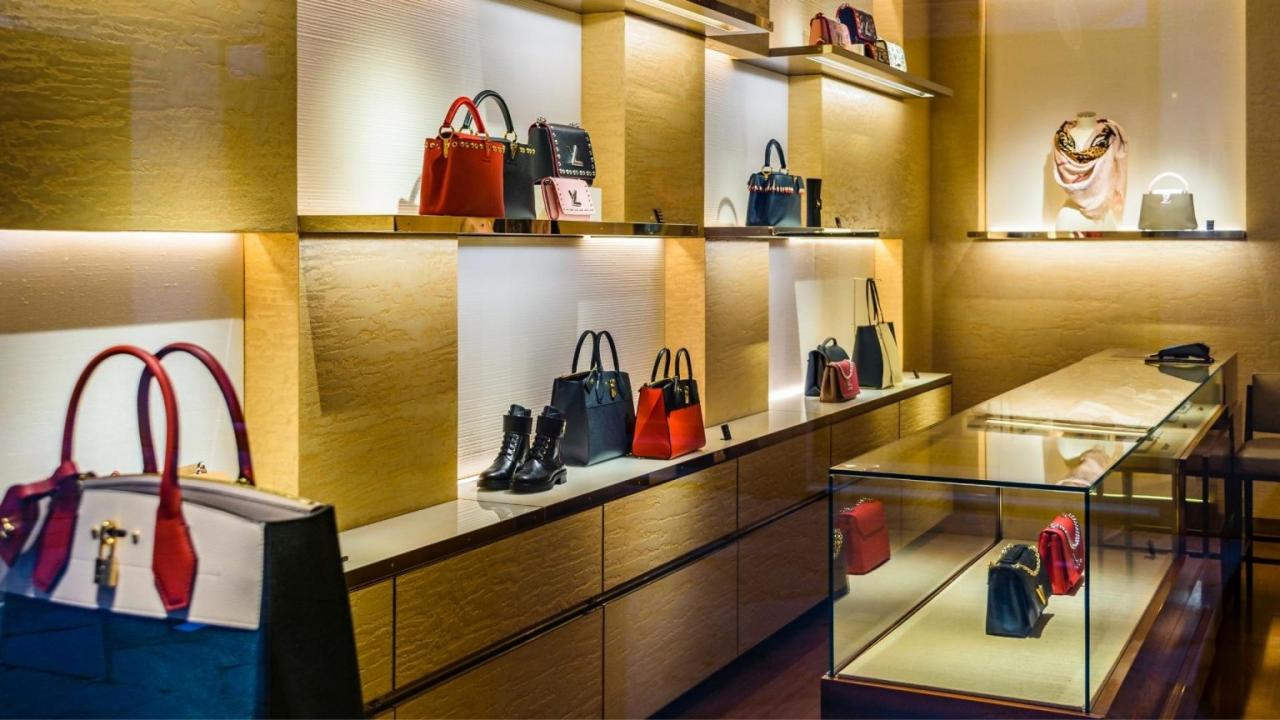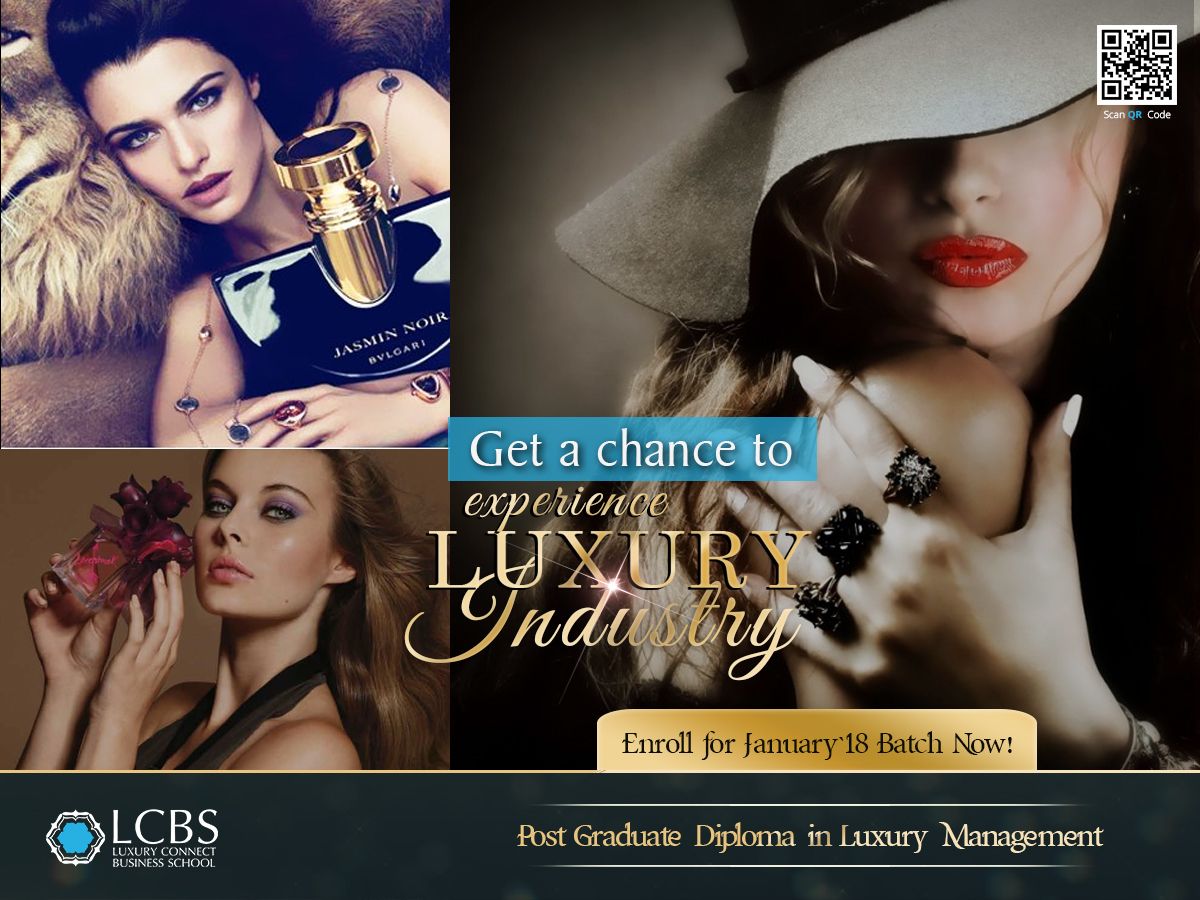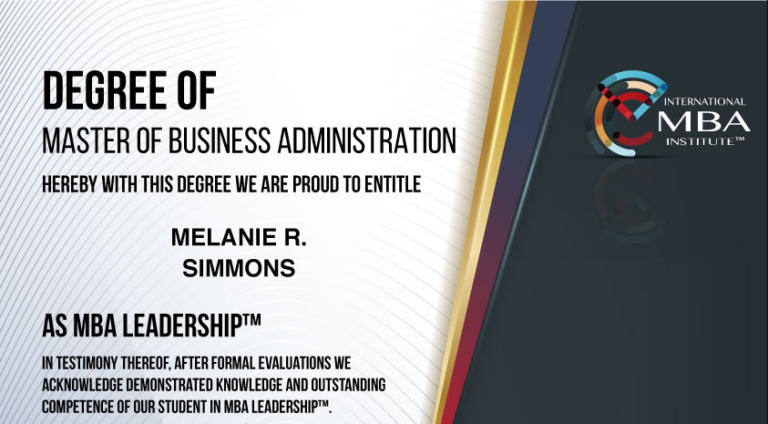MBA in Luxury Brand Management: Want to navigate the glamorous world of high-end brands? This program isn’t just about champagne wishes and caviar dreams; it’s a rigorous academic journey equipping you with the strategic acumen to thrive in a highly competitive industry. We’ll explore the curriculum, career paths, and unique challenges of managing luxury brands, from crafting marketing campaigns that resonate with discerning clientele to understanding the ethical and sustainable practices crucial for long-term success.
This guide delves into the specifics of earning an MBA in luxury brand management, outlining curriculum details, career prospects, required skills, and the application process. We’ll compare different programs, discuss networking opportunities, and analyze current industry trends and challenges, including the increasing importance of sustainability and ethical considerations. Ultimately, this exploration aims to provide a comprehensive understanding of this specialized MBA path and its potential rewards.
Program Overview
An MBA in Luxury Brand Management provides a specialized education focusing on the unique challenges and opportunities within the luxury goods and services sector. This program equips students with the business acumen necessary to navigate the complexities of this high-stakes industry, combining traditional MBA principles with a deep understanding of luxury brand positioning, consumer behavior, and global market dynamics.
Graduates are prepared for leadership roles in various aspects of the luxury industry, from marketing and product development to supply chain management and strategic planning.
Typical Curriculum of an MBA in Luxury Brand Management
A typical MBA in Luxury Brand Management curriculum blends core MBA subjects with specialized luxury-focused courses. Core courses usually cover fundamental business areas like finance, accounting, marketing, and strategy, but adapted to the context of luxury brands. Elective options allow students to tailor their studies to specific interests, such as sustainable luxury, digital marketing in the luxury sector, or luxury retail management.
The program often includes experiential learning opportunities, such as case studies, industry projects, and potentially international study trips to luxury hubs like Paris or Milan.
Curriculum Comparison Across Universities
The specific curriculum can vary significantly between universities. Here’s a comparison of three hypothetical universities, showcasing the diversity in program structure and focus:
| University | Core Courses | Elective Options | Program Duration |
|---|---|---|---|
| University A | Financial Accounting for Luxury Businesses, Luxury Brand Marketing, Strategic Management in Luxury, Luxury Consumer Behavior, Operations Management in Luxury | Luxury Retail Management, Sustainable Luxury Practices, Digital Marketing for Luxury Brands, Luxury Brand Valuation, International Luxury Market Analysis | 12 months |
| University B | Luxury Brand Strategy, Financial Modeling for Luxury, Marketing Analytics for Luxury, Supply Chain Management in Luxury, Luxury Product Development | Luxury Law and Intellectual Property, Luxury Brand Communications, Global Luxury Markets, Entrepreneurship in the Luxury Sector, Luxury Hospitality Management | 18 months |
| University C | Corporate Finance, Marketing Management, Strategic Brand Management, Consumer Insights, Operations and Supply Chain Management | Luxury Brand Storytelling, Luxury E-commerce, Luxury Personalization and Customer Relationship Management, Art and Luxury, Luxury Tourism and Experiences | 24 months |
Sample Syllabus: Luxury Brand Strategy
This course examines the strategic challenges and opportunities faced by luxury brands in a rapidly evolving global marketplace. Students will develop a deep understanding of luxury brand positioning, competitive dynamics, and the critical factors driving long-term success. The course will use a blend of case studies, lectures, and group projects to explore key strategic concepts and their application to real-world luxury brand scenarios.
Course Objectives: Upon successful completion of this course, students will be able to:
- Define and analyze the characteristics of luxury brands.
- Develop and evaluate luxury brand strategies.
- Assess the competitive landscape of the luxury industry.
- Understand the role of innovation and sustainability in luxury brand management.
- Apply strategic frameworks to real-world luxury brand case studies.
Course Structure: The course will be structured around weekly lectures, case study analyses, and group projects. A significant portion of the grade will be based on a final group project requiring students to develop a comprehensive brand strategy for a chosen luxury brand or a hypothetical new luxury product.
Assessment:
- Class Participation (20%)
- Case Study Analyses (30%)
- Midterm Exam (25%)
- Final Group Project (25%)
Required Readings: A list of relevant academic articles and industry publications will be provided at the start of the course. Examples might include works on luxury brand positioning, competitive advantage in luxury markets, and the changing consumer landscape in luxury goods.
Career Paths and Opportunities

An MBA in Luxury Brand Management opens doors to a diverse range of exciting career paths within the prestigious world of luxury goods. Graduates are highly sought after for their unique blend of business acumen and deep understanding of the luxury market’s nuances. This specialization equips individuals with the skills to navigate the complexities of branding, marketing, and management within this high-value sector.This specialized MBA prepares graduates for roles that demand a sophisticated understanding of consumer behavior, brand positioning, and strategic decision-making within the luxury context.
The program’s curriculum, typically encompassing areas like marketing, finance, and supply chain management, specifically tailored to the luxury sector, ensures graduates are well-equipped to handle the challenges and opportunities unique to this field.
Potential Career Roles
The skills gained through an MBA in Luxury Brand Management are highly transferable and lead to various roles across different facets of the luxury industry. These roles span from brand management and marketing to retail operations and even entrepreneurial ventures. Graduates often find themselves in leadership positions, leveraging their specialized knowledge to drive brand growth and profitability.
Companies that Hire Luxury Brand Management Graduates
Many luxury brands and related businesses actively recruit graduates with this specialized MBA. The following list offers a glimpse into the diverse range of companies seeking these highly skilled professionals:
- Luxury Fashion Houses (e.g., Chanel, Louis Vuitton, Gucci, Hermès): These companies often hire for roles in brand management, marketing, and retail operations.
- Luxury Goods Companies (e.g., LVMH, Richemont, Kering): These conglomerates offer a wide array of roles across their various luxury brands.
- Luxury Retail Groups (e.g., Saks Fifth Avenue, Harrods, Neiman Marcus): These groups employ graduates in management, buying, and merchandising roles.
- Luxury Hospitality and Tourism (e.g., Four Seasons Hotels and Resorts, Ritz-Carlton): These companies often seek graduates for roles in brand management and customer experience.
- Luxury Consulting Firms (e.g., Bain & Company, McKinsey & Company): These firms frequently hire graduates for strategy consulting roles focused on the luxury sector.
Salary Expectations and Career Advancement
Salary expectations for graduates with an MBA in Luxury Brand Management are typically competitive and reflect the high demand for their skills. Starting salaries vary depending on the specific role, company, and location, but often fall within a range reflecting significant earning potential. For instance, entry-level brand management roles might offer salaries starting in the six-figure range, while more senior roles naturally command significantly higher compensation.Career advancement within the luxury industry is often tied to demonstrable success in managing brands, driving sales growth, and developing innovative marketing strategies.
With experience and proven results, graduates can progress to senior management positions, such as Brand Director, Marketing Director, or even CEO, within established luxury brands or within their own entrepreneurial ventures. The potential for career advancement is substantial, especially for individuals who demonstrate strong leadership skills, strategic thinking, and a deep understanding of the luxury market. Many successful executives in the luxury industry hold MBAs, demonstrating the value of this advanced degree.
Skills and Knowledge Acquired
An MBA in Luxury Brand Management equips students with a unique blend of business acumen and luxury industry expertise. This program goes beyond the general principles of business administration, focusing on the specific challenges and opportunities within the high-end market. Graduates emerge with a sophisticated understanding of luxury consumer behavior, brand strategy, and the intricate operations of luxury businesses.This specialized MBA provides a comprehensive skillset applicable across various luxury sectors.
Students develop both hard skills, like financial analysis and marketing strategies tailored to luxury brands, and soft skills, including effective communication and intercultural competence crucial for navigating the global luxury landscape.
Key Skills and Knowledge, MBA in luxury brand management
The following bullet points highlight the core competencies developed throughout the program. These skills are not merely theoretical; they are honed through case studies, real-world projects, and potentially internships within prestigious luxury houses.
- Luxury Brand Strategy & Positioning: Understanding the nuances of luxury branding, including heritage, craftsmanship, and exclusivity, and developing strategies to maintain and enhance brand equity.
- Luxury Consumer Behavior & Market Research: Analyzing the unique motivations and purchasing behaviors of luxury consumers, including high-net-worth individuals and discerning millennials.
- Luxury Marketing & Communication: Developing and implementing effective marketing campaigns that resonate with the luxury consumer base, utilizing both traditional and digital channels.
- Luxury Product Development & Management: Understanding the complexities of creating, sourcing, and managing luxury products, from concept to launch and beyond.
- Luxury Retail & Distribution: Managing the sales and distribution channels specific to the luxury industry, including flagship stores, e-commerce, and exclusive partnerships.
- Luxury Financial Management & Analysis: Analyzing the financial performance of luxury brands, understanding key metrics, and making informed business decisions.
- International Luxury Business & Globalisation: Navigating the complexities of the global luxury market, understanding cultural nuances, and adapting strategies for international expansion.
- Supply Chain Management in Luxury: Understanding the unique challenges and opportunities of managing the supply chain for luxury goods, ensuring quality and authenticity.
- Sustainability and Ethical Practices in Luxury: Integrating sustainable and ethical considerations into all aspects of luxury brand management.
- Negotiation and Relationship Management: Building and maintaining strong relationships with key stakeholders, including suppliers, designers, retailers, and high-net-worth individuals.
Real-World Application of Skills
These skills translate directly into practical applications within the luxury industry. For example, a graduate might leverage their knowledge of luxury consumer behavior to inform a targeted marketing campaign for a high-end watchmaker, or use their expertise in supply chain management to optimize the sourcing of rare materials for a fashion house. Their understanding of luxury financial management could be vital in evaluating the financial viability of a new product line for a cosmetics brand.
Furthermore, skills in negotiation could be essential in securing a lucrative partnership with a prestigious retailer.
Skill Comparison: Luxury MBA vs. General MBA
The following table highlights the key differences in skills acquired through an MBA in Luxury Brand Management compared to a general MBA program.
| Skill | MBA in Luxury Brand Management Application | General MBA Application | Difference |
|---|---|---|---|
| Brand Strategy | Developing a heritage-focused marketing campaign for a luxury fashion house. | Developing a marketing campaign for a consumer goods company. | Focus on heritage, exclusivity, and emotional connection versus mass-market appeal. |
| Consumer Behavior | Understanding the motivations of high-net-worth individuals purchasing luxury yachts. | Understanding the purchasing decisions of consumers buying everyday groceries. | Focus on aspirational purchasing, emotional drivers, and brand loyalty. |
| Marketing | Crafting a social media strategy that leverages influencer marketing for a luxury skincare brand. | Developing a digital marketing strategy for a fast-moving consumer goods company. | Focus on exclusivity, personalized experiences, and high-quality content. |
| Financial Management | Analyzing the profitability of a luxury hotel chain. | Analyzing the profitability of a mid-sized manufacturing company. | Focus on high margins, brand equity valuation, and managing luxury assets. |
Admission Requirements and Application Process: MBA In Luxury Brand Management
Gaining admission to a prestigious MBA in Luxury Brand Management program is a competitive endeavor. Success hinges on a strong application demonstrating not only academic excellence but also a genuine passion for the luxury industry and a clear understanding of the program’s unique offerings. This section Artikels the typical requirements and steps involved in the application process.A successful application showcases a compelling blend of academic achievement, professional experience, and personal qualities.
Admissions committees look for candidates who possess a strong understanding of business principles, a proven ability to think strategically, and a demonstrable commitment to a career in luxury brand management. The process is rigorous but designed to identify individuals with the potential to excel in this specialized field.
Typical Admission Requirements
Admission requirements vary slightly between institutions, but generally include a strong academic record, professional experience, GMAT or GRE scores, letters of recommendation, and a compelling application essay. Specific requirements are detailed on each program’s website. Many programs also value demonstrated leadership qualities and international experience. For instance, a candidate with a proven track record in managing marketing campaigns for a high-end brand would be highly competitive.
Similarly, fluency in multiple languages, especially those prevalent in major luxury markets, is often considered a significant asset.
Application Process Steps
The application process typically involves several key steps, each requiring careful attention to detail and thorough preparation. A well-structured and meticulously crafted application significantly increases the chances of acceptance. The following steps provide a general overview.
- Submit Online Application: Begin by completing the online application form, providing accurate and complete information about your academic background, work experience, and extracurricular activities.
- Official Transcripts: Submit official transcripts from all previously attended universities and colleges. These should be sent directly from the issuing institutions to the admissions office.
- GMAT or GRE Scores: Submit official GMAT or GRE scores. Target scores vary depending on the program’s competitiveness, but generally, higher scores significantly improve your chances of admission.
- Letters of Recommendation: Request at least two letters of recommendation from individuals who can speak to your professional abilities and personal qualities. These should come from supervisors, professors, or mentors who know you well and can provide insightful perspectives.
- Essays: Craft compelling essays that address specific prompts provided by the program. These essays provide an opportunity to showcase your personality, motivations, and career aspirations. Focus on demonstrating a deep understanding of the luxury industry and your suitability for the program.
- Resume/CV: Submit a detailed and well-structured resume or curriculum vitae highlighting your professional experience, accomplishments, and skills relevant to luxury brand management.
- Interview (if applicable): Prepare for a potential interview, which may be conducted in person, via video conference, or by phone. The interview provides an opportunity for the admissions committee to assess your communication skills, personality, and suitability for the program.
Networking and Industry Connections

In the rarefied world of luxury brand management, your network is your net worth. Building strong relationships isn’t just beneficial; it’s essential for career advancement and success. An MBA in luxury brand management provides more than just theoretical knowledge; it’s a crucial stepping stone to accessing and cultivating these vital industry connections.An MBA program significantly enhances networking opportunities, providing a structured environment designed to foster professional relationships.
These opportunities go beyond simply attending classes; they are actively cultivated through a range of initiatives. This facilitates the creation of a robust professional network that extends well beyond graduation.
Networking Opportunities within MBA Programs
MBA programs in luxury brand management often incorporate networking events directly into their curriculum. These can include guest lectures by industry leaders, workshops focusing on networking strategies, and exclusive access to industry conferences and trade shows. Many programs also organize alumni events, providing current students with the chance to connect with successful graduates already working in the field. Furthermore, many programs cultivate partnerships with luxury brands, leading to internships, mentorship opportunities, and potential employment prospects.
These strategic alliances open doors to a wider range of networking possibilities, including exclusive company visits and career fairs specifically geared toward luxury brands. The structured approach ensures students gain both the skills and the access to build meaningful relationships.
The Value of Networking: A Case Study
Consider Anya, a recent graduate of a top luxury brand management MBA program. Through active participation in a program-sponsored networking event, she met Mr. Dubois, the head of marketing for a prestigious champagne house. While initially just a brief conversation, Anya followed up with a thoughtful email, expressing her interest in the company and highlighting her relevant coursework and skills.
This led to an informational interview, which then blossomed into an internship. Anya’s proactive networking, facilitated by her MBA program, ultimately resulted in a full-time position after her internship concluded, showcasing the direct link between strategic networking and career success within the luxury sector. This is not an isolated case; many graduates find similar success through the program’s cultivated networking opportunities.
Challenges and Trends in Luxury Brand Management
The luxury goods market, while seemingly glamorous, faces a complex web of challenges and is constantly reshaped by emerging trends. Understanding these dynamics is crucial for success in luxury brand management. This section will explore some key challenges and trends, highlighting their impact and offering a glimpse into the future of the industry.
Current Challenges Facing Luxury Brand Management
The luxury sector isn’t immune to the broader economic and societal shifts impacting the global marketplace. Maintaining exclusivity while expanding reach, managing brand authenticity in a digital age, and navigating evolving consumer preferences are just a few of the significant hurdles.
One major challenge is the balancing act between exclusivity and accessibility. Luxury brands strive to maintain a perception of rarity and high value, yet also need to reach a wider audience to fuel growth. This tension often requires careful strategies to manage brand image and distribution channels. Another significant hurdle is the increasing importance of digital channels. While online platforms offer unprecedented reach, they also pose risks to brand control and the maintenance of a premium image.
Counterfeit products are rampant online, and managing the brand’s online presence requires sophisticated strategies to combat this threat and maintain a consistent brand experience.
Furthermore, understanding and adapting to shifting consumer preferences is paramount. Millennials and Gen Z, with their distinct values and purchasing habits, are increasingly influencing the luxury market. These generations prioritize experiences and sustainability, demanding greater transparency and ethical practices from brands. Finally, geopolitical instability and economic fluctuations create uncertainty and can significantly impact consumer spending on luxury goods.
Emerging Trends Shaping the Future of Luxury Brands
Several trends are reshaping the landscape of luxury brand management. These trends offer both opportunities and challenges for brands willing to adapt and innovate.
Personalization and Customization is a major trend. Luxury consumers increasingly seek unique, personalized experiences and products tailored to their individual tastes. This requires brands to invest in advanced technologies and data analytics to understand consumer preferences and deliver highly customized offerings. Sustainability and Ethical Sourcing are also gaining traction. Consumers are increasingly conscious of the environmental and social impact of their purchases, and luxury brands are responding by adopting sustainable practices and transparent supply chains.
Experiential Luxury is another key trend, focusing on creating memorable experiences rather than solely on material possessions. This could involve offering exclusive events, personalized services, or unique brand collaborations.
Finally, the Metaverse and Web3 technologies present both opportunities and challenges. Luxury brands are exploring the potential of virtual worlds and NFTs to engage with younger consumers and create new revenue streams. However, navigating this new digital landscape requires careful consideration of brand identity and authenticity in virtual spaces.
Hypothetical Marketing Campaign: Redefining Sustainability in Luxury Watchmaking
Let’s consider a hypothetical marketing campaign for a luxury watch brand, “Chronos,” aiming to address the challenge of communicating its commitment to sustainability to a discerning, environmentally conscious clientele.
Target Audience: Affluent millennials and Gen Z (25-45 years old) with a strong interest in sustainability and ethical consumption, who appreciate high-quality craftsmanship and design, and are active on social media and engage with online content related to sustainability and luxury goods. They value authenticity and transparency.
Campaign Goals: To increase brand awareness among the target audience, to position Chronos as a leader in sustainable luxury watchmaking, and to drive sales of the brand’s new line of ethically sourced and sustainably manufactured watches. A secondary goal is to increase engagement on social media platforms.
Marketing Channels: The campaign would leverage a multi-channel approach, including:
- Social Media Marketing: Instagram and TikTok campaigns featuring visually stunning content showcasing the watch’s design and the brand’s sustainable practices. Influencer collaborations with individuals known for their commitment to sustainability and luxury lifestyle would be utilized. Behind-the-scenes content showcasing the ethical sourcing and manufacturing process would build transparency and trust.
- Digital Advertising: Targeted ads on websites and platforms frequented by the target audience, highlighting the unique features and sustainable aspects of the watches. Interactive online experiences allowing customers to virtually explore the watch and learn about its sustainable features would be incorporated.
- Public Relations: Press releases announcing the launch of the new watch line and highlighting the brand’s commitment to sustainability. Partnerships with relevant environmental organizations would enhance credibility and brand image. Press events showcasing the watches and the brand’s sustainable initiatives would target key journalists and influencers.
- Experiential Marketing: Exclusive events showcasing the watches in environmentally conscious settings, such as sustainable art installations or eco-friendly resorts, would create a memorable brand experience. Workshops on watchmaking and sustainable practices would allow customers to engage more deeply with the brand’s values.
The Role of Sustainability and Ethical Practices

The luxury industry, once synonymous with extravagance and opulence, is undergoing a significant transformation. Consumers, particularly millennials and Gen Z, are increasingly demanding transparency and ethical responsibility from the brands they support. This shift in consumer values is driving a fundamental change in how luxury brands operate, placing sustainability and ethical practices at the forefront of their business strategies.
Ignoring these concerns is no longer an option; it’s a critical factor for long-term success and brand reputation.Sustainability and ethical practices are no longer niche concerns within the luxury sector; they are rapidly becoming essential components of a successful business model. Luxury MBA programs recognize this evolving landscape and are adapting their curricula to equip future leaders with the necessary knowledge and skills to navigate this complex terrain.
These programs integrate sustainability and ethical considerations into various aspects of their teaching, from supply chain management and marketing to brand strategy and corporate social responsibility. Students are challenged to develop innovative solutions that balance luxury’s inherent values with the pressing need for environmental and social responsibility.
Curriculum Integration of Sustainability and Ethical Practices
Luxury MBA programs are incorporating sustainability and ethical considerations into their curriculum through a variety of methods. Many programs offer dedicated courses focusing on sustainable business practices within the luxury sector. These courses often explore topics such as sustainable sourcing of materials, eco-friendly manufacturing processes, circular economy models, and ethical labor practices. Furthermore, sustainability principles are integrated into case studies and group projects across different modules, allowing students to apply their learning to real-world scenarios.
Guest lectures and workshops featuring industry experts further enrich the learning experience, providing students with practical insights and best practices. Finally, many programs encourage students to engage in sustainability-focused initiatives and projects, allowing them to gain hands-on experience and contribute to positive change.
Examples of Sustainable Luxury Brands
The growing importance of sustainability is evident in the actions of several leading luxury brands. Many have already begun integrating sustainable practices into their business models, demonstrating that luxury and sustainability are not mutually exclusive.
- Stella McCartney: This brand has consistently championed sustainable and ethical practices throughout its entire supply chain. They utilize innovative, sustainable materials, such as organic cotton and recycled polyester, and actively promote animal welfare. Their commitment to transparency is also noteworthy.
- Kering: This luxury conglomerate, which owns brands like Gucci, Yves Saint Laurent, and Balenciaga, has set ambitious sustainability goals and implemented various initiatives across its portfolio. These include reducing carbon emissions, promoting biodiversity, and improving working conditions throughout their supply chains.
- Chanel: Chanel has invested significantly in sustainable sourcing and packaging, focusing on reducing its environmental impact through initiatives such as using recycled materials and implementing sustainable packaging solutions. They are also actively working on improving their supply chain transparency.
These are just a few examples of luxury brands actively embracing sustainability. The increasing pressure from consumers, coupled with the long-term benefits of sustainable practices, is driving further innovation and adoption across the industry.
Global Perspectives in Luxury Brand Management
The luxury industry isn’t confined to a single nation; it’s a truly globalized marketplace, demanding sophisticated strategies that navigate diverse cultural nuances, economic landscapes, and consumer preferences. Understanding these global dynamics is crucial for effective luxury brand management, influencing everything from product design and marketing campaigns to distribution channels and pricing models. This section explores the global nature of the luxury industry and how these factors impact brand management.The global luxury market is characterized by significant regional variations in consumer behavior, purchasing power, and cultural values.
These differences necessitate tailored strategies to resonate with specific target audiences. A one-size-fits-all approach is almost guaranteed to fail. Success hinges on a deep understanding of local markets and the ability to adapt branding and messaging accordingly. This requires careful market research, cultural sensitivity, and often, localized product variations.
Luxury Markets: Europe and Asia
Europe and Asia represent two vastly different, yet equally important, luxury markets. Europe, particularly France, Italy, and Switzerland, has long been the cradle of luxury, with established heritage brands and a sophisticated consumer base deeply attuned to craftsmanship and tradition. Asian markets, particularly China, Japan, and South Korea, have experienced explosive growth in recent decades, driven by a burgeoning middle class with a strong appetite for luxury goods.
However, the Asian luxury consumer often prioritizes different aspects, such as status symbols and brand recognition, compared to their European counterparts who might place greater emphasis on exclusivity and heritage. European luxury brands often need to adapt their messaging and product offerings to resonate with the aspirational values of the Asian consumer, while simultaneously maintaining their brand’s heritage and authenticity.
Conversely, Asian brands are increasingly making inroads into European markets, presenting a dynamic competitive landscape.
Case Study: LVMH’s International Expansion
LVMH Moët Hennessy Louis Vuitton, a global leader in luxury goods, provides an excellent example of successful international expansion. Their strategy is multifaceted, incorporating a blend of organic growth and strategic acquisitions. They’ve demonstrated a keen ability to adapt their brands to local markets while preserving core brand identities. For instance, Dior’s marketing campaigns in Asia might emphasize modern aesthetics and celebrity endorsements, contrasting with a more classic and heritage-focused approach in Europe.
Simultaneously, LVMH has strategically acquired local brands, integrating them into their portfolio and leveraging existing distribution networks to expand reach. Their success stems from a deep understanding of diverse consumer preferences, a commitment to local market research, and a flexible approach to brand management that balances global consistency with regional adaptation. The company’s diverse portfolio, ranging from high fashion (Dior, Louis Vuitton) to spirits (Moët & Chandon) and cosmetics (Sephora), allows them to cater to various consumer segments across different regions, maximizing market penetration and minimizing risk.
This careful approach, balancing global vision with local sensitivity, underscores the importance of a nuanced understanding of global perspectives in luxury brand management.
Conclusion
Earning an MBA in Luxury Brand Management is a significant investment, but the potential returns—both financially and professionally—are substantial. By understanding the unique skills and knowledge required, leveraging networking opportunities, and staying abreast of industry trends, graduates can position themselves for success in this exciting and demanding field. The path may be challenging, but the rewards of crafting narratives and shaping the future of iconic luxury brands are undeniably compelling.
The luxury market is dynamic, and those with the right skills and strategic vision will lead the way.
Detailed FAQs
What’s the difference between a general MBA and an MBA in Luxury Brand Management?
A general MBA provides a broad business foundation, while an MBA in Luxury Brand Management focuses specifically on the unique challenges and opportunities within the luxury sector. The latter emphasizes branding, marketing to affluent consumers, and understanding the cultural nuances of luxury goods.
How long does an MBA in Luxury Brand Management program typically take?
Program lengths vary, but many are completed within 1-2 years, depending on the program structure (full-time vs. part-time).
Are internships a common part of these programs?
Yes, many programs incorporate internships or other practical experience components, providing valuable real-world exposure within the luxury industry.
What kind of salary can I expect after graduation?
Salaries vary widely based on experience, location, and employer, but graduates can expect competitive compensation, often exceeding that of general MBA graduates in some cases.
What are the key soft skills needed for success in this field?
Strong communication, networking, and interpersonal skills are crucial, alongside creativity, strategic thinking, and an understanding of cultural sensitivity.





